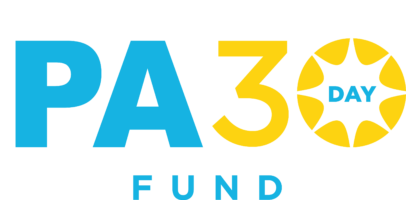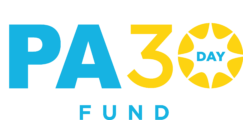Privately backed forgivable loans program takes flight, being met with staggering demand
Michelle Caffrey
May 20, 2020 10:54am
It was a Saturday morning, and Jeff Bartos was exhausted.
The day before, on April 17, the Payroll Protection Program loan he had stressed over for weeks finally hit his company’s bank account. The loan amounted to less than $100,000 and allowed him to put seven furloughed employees of his real estate investment firm back on the payroll, but the entire ordeal had been draining. So when Pete Snyder, a friend of 40 years, called Bartos that morning and told him he needed to create a Pennsylvania version of the fund Snyder and his wife launched to support small business owners in Virginia, he said no, at first.
“I said ‘Absolutely not,’ I’m tired, I’m frustrated and fried,” recalls Bartos, the president of ESB Holdings and a former Republican candidate for lieutenant governor in 2018.
Snyder, CEO of Disruptor Capital, then asked him — 10 years from now, when you look back at this historic crisis, do you want to say you bemoaned your own business struggles, or led an effort to support struggling small business owners facing enormous difficulties?
Bartos was sold, and within a few weeks he had assembled an advisory team of six other business leaders in the region, began raising funds and recruited graduating MBA and law school students to help process applications. (The other advisory board members include Slice Communications CEO Cassandra Bailey; Royer Cooper Cohen Braunfeld Partner Roger Braunfeld; Jeff Brown, the CEO of ShopRite chain Brown’s Super Stores; Comeau & Co. CEO Maia Comeau, Pilot Freight Services Chairman Richard Phillips and Bellevue Strategies CEO Mustafa Rashed.)
The Pennsylvania 30 Day Fund, modeled after the Virginia 30 Day Fund, officially launched in early May. With only private backing, the fund aims to provide $3,000 forgivable loans directly to small business owners. To be eligible companies need to have been in business for more than a year, be owned by a Pennsylvania resident, and employ between three and 30 people. It’s designed to help keep a company going for a month or so, acting as a bridge to either economic recovery as counties slowly reopen or additional funding.
Recipients are encouraged to spend the funds on keeping employees on their payroll, although it’s not auditing how they money is used. The loan does not need to be repaid, Bartos said, but if a business owner is capable of repaying it in the future, the organization asks that they “pay it forward” by contributing back to the fund for the next business owner who needs it.
The organization has raised about $200,000 so far, and is actively trying to raise additional funds. The demand has been staggering. After less than two weeks, the 30 Day Fund has received 751 applications and been able to fund 46 companies.
As it works to raise more funding, it’s also accepting new applications. Every day, the advisory board meets virtually to go through the newest stack and decide on recipients. It’s a tough process, Bartos said.
While the application is designed to be straightforward and doesn’t include the red tape involved in government-back programs, it does require owners send in a video of themselves talking about their companies. Watching and hearing the owners’ struggles has shown Bartos just how vast the need is for small business support programs, and how important even the smallest amount of funding can be to these owners.
“This has been a joyful, humbling, devastating, emotional up-and-down,” he said. “You fall in love with these companies … It’s emotionally overwhelming to try to make these decisions.”
The difficult choices are worth it if he can help ease the pain of just those dozens of business owners so far, Bartos said.
The board has prioritized firms based on a holistic approach, looking at how sustainable a business is, if the funding would help it retain jobs, any changes it’s made to its business model to help its survival, the people it serves and, most importantly, its impact on a community.
Women-owned and minority-owned businesses that have met the needs of
underserved communities have stood out, as well as owners who have worked to mentor youth and hire formerly incarcerated workers. Recipients have included a plumber who is struggling after building up his business for years, a cardiologist who works with high-risk, economically disadvantaged populations, a woman-owned construction company, a mixed martial arts studio run by an anti-bullying advocate, as well as hair and beauty salons, child care centers and restaurants. Many, when receiving a call saying they’ve received the loan, have cried and were overwhelmed with emotion, Bartos said. Every dollar counts in a crisis of this magnitude.
“It’s been an overwhelming experience to be a part of this,” he said. “You can’t help but think about the thousands and thousands of small businesses we’re never going to touch.”
On some level, every small business owner has a part to play in the coming financial recovery, he said, but if additional policy moves or private efforts aren’t made to see them through this difficult period, they may not survive.
“I’ve been calling this an extinction-level event. If we don’t align our policies and funding as a community, my fear is we’re going to wake up in six months and a lot of these businesses won’t be here,” he said.
Based on what the organization’s seen in the past two weeks, he said, it’s not too late to help them make it to the other side.


